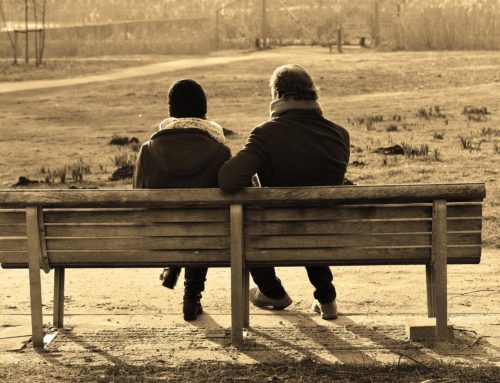Panic attacks are sudden and acute feelings of dread or terror without any apparent reason for those feelings. It feels like suddenly coming face to face with a bear while walking in the woods. But with panic attacks, there is no bear. You might feel like you are having a heart attack, or about to die. These attacks are random, sudden, and overwhelming. If this sounds like you, I have some important information that might help.
Some individuals have described their panic attacks like this: “My heart pounding, I’m shaking, I’m sweating, my stomach is in knots…. And I have this incredible sense of dread, something awful is going to happen.”
Interestingly, people who chose to bungee jump off bridges have similar brain activity as the person suffering a panic attack. But with one distinct difference. The bungee jumper knows what’s happening and is looking forward to the sensation. They know what is causing the sensations they are experiencing, and recognize it as having no real danger. The person having a panic attack doesn’t know what has triggered the attack. As there is no known danger causing the attack, they begin to react to the symptoms as if something terrible is about to happen.
Panic attacks can be overwhelming and debilitating. They can occur anywhere and anytime without warning. Like when driving your car, or in the middle of an important meeting. They typically don’t less longer than 5 or 6 minutes, but you may feel fatigued or worn out after an attack.
Although these attacks are not life threatening, they can significantly alter your quality of life.
You may find yourself avoiding certain places or situations out of fear that a panic attack will occur. You are at greater risk of abusing alcohol and other drugs as a way of minimizing the effects of panic attacks. In time, you might develop other conditions like an anxiety disorder.
Helpful advice
There are somethings you can do to minimize the negative effects of panic attacks. Here are 4 you should try:
- Avoid coffee and other stimulants. These can trigger and worsen an attack.
- Practice stress management and relaxation techniques. Try yoga or deep breathing.
- Join a local support group. Talking to others going through this can help.
- Physical activity can be helpful. Try going for walks or other aerobic activities.
You should also consider speaking with a mental health professional near you in Spokane, WA. They can provide you with a comprehensive health plan that will help you to get your life back on track. Reach out to Damaris through her contact page or calling 509-342-6592.






